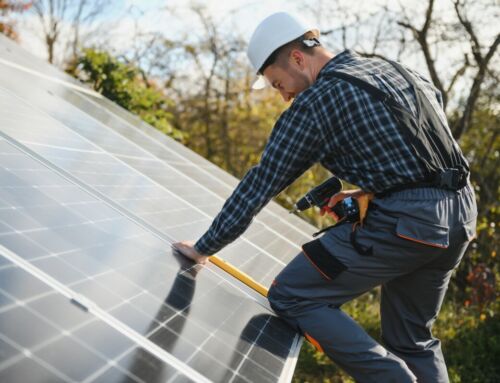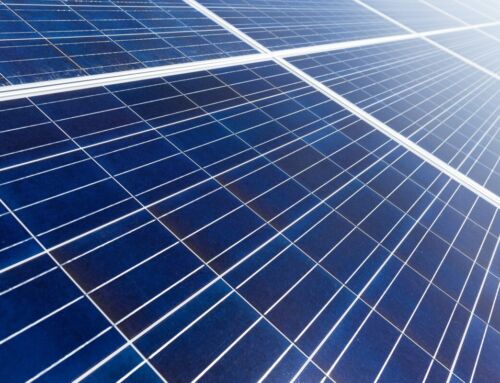Solar energy is likely the most realistic sustainable alternative to traditional energy sources. As concerns about environmental degradation and energy security increase, individuals and businesses are using solar power to reduce their carbon output and energy costs. Achieving optimum solar energy is essential for making the most out of solar power systems, ensuring that solar panels run at peak efficiency and provide maximum benefits. In this article, we’ll explore the concept of optimum solar energy, discuss how to achieve it, and highlight the role of solar panels in this process. Additionally, we will discuss how NewSolarQuotes.com helps customers get solar panels tailored to their needs, ensuring they achieve optimum solar energy.
Understanding Optimum Solar Energy
Optimum solar energy refers to the maximum solar energy that can be captured, absorbed, and converted into electricity by a solar power system. Achieving this optimum level involves a combination of factors, including selecting high-quality solar panels, proper installation, regular maintenance, and integrating advanced technologies such as solar trackers and inverters.
The primary goal of any solar power system is to convert as much sunlight as possible into electricity. However, this process is influenced by various factors, including geographic location, weather conditions, the angle of the panels, and the efficiency of these panels run at.
The Role of Solar Panels in Achieving Optimum Solar Energy
Solar panels are the heart of any solar power system. They are composed of photovoltaic (P.V.) cells that absorb sunlight and convert it into electricity. The efficiency of these P.V. cells determines the overall performance of the solar power system. Higher-efficiency panels can convert more sunlight into electricity, even in less-than-ideal conditions, thereby contributing to optimum solar energy.
When selecting solar panels, considering their efficiency rating, typically expressed as a percentage, is necessary. This rating indicates how much sunlight that hits the panel is converted into electricity. Although the higher-efficiency panels cost more, they can provide greater energy output over the long term, making them a wise investment for those seeking to achieve optimum solar energy.
Factors Influencing Optimum Solar Energy
Several factors influence the ability of a solar power system to achieve optimum solar energy. Understanding and dealing with these factors can help ensure that the system operates properly:
- Geographic Location: The amount of sunlight available at a particular location is one of the most significant factors influencing solar energy production. Areas closer to the equator get more direct sunlight, making them ideal for solar power generation. However, solar panels are still operational in regions with less sunlight, provided they are installed and maintained correctly.
- Orientation and Tilt of Solar Panels: The angle at which solar panels are installed affects how much sunlight they receive. For maximum energy production, solar panels should be oriented to face the direction that receives the most sunlight throughout the day. The tilt of the panels should also be adjusted using data such as the latitude of the installation site to maximize sunlight exposure.
- Shading: Shading from nearby trees, buildings, or other structures can significantly reduce the sunlight that reaches the solar panels, thereby reducing energy production. Minimizing shading by selecting an installation site that receives direct sunlight throughout the day is essential.
- Temperature: Solar panels work better at lower temperatures. As the temperature rises, the efficiency of the photovoltaic cells decreases, which can reduce energy production. Solar panels should be installed with adequate ventilation to allow for cooling.
- Maintenance: Regular maintenance ensures that solar panels operate at peak efficiency. Cleaning the panels regularly and checking for damage or wear will improve the performance.
- Advanced Technologies: Integrating advanced technologies such as solar trackers and inverters can also contribute to achieving optimum solar energy. Solar trackers automatically adjust the position of the solar panels, maximizing sunlight exposure. Inverters convert the direct current (D.C.) electricity generated by the solar panels into A.C., which can be used by household appliances and fed into the grid.
NewSolarQuotes.com: Your Partner in Achieving Optimum Solar Energy
At NewSolarQuotes.com, we understand the importance of achieving optimum solar energy for our customers. Our mission is to help homeowners and businesses transition to solar power by giving them the information, resources, and connections they need to make informed decisions about solar energy. Whether you are considering installing solar panels for the first time or looking to upgrade your existing system, NewSolarQuotes.com is here to guide you every step of the way.
One of our key services is connecting customers with reputable solar panel providers and installers in their area. WThat’se works with a network of trusted partners who offer high-quality solar panels and professional installation services.
In addition to helping customers find the right solar panels, we also provide valuable resources and information on topics such as solar panel maintenance, solar energy efficiency, and the latest advancements in solar technology. By staying informed and making the right choices, our customers can maximize their solar power systems and achieve optimum solar energy.
The Financial and Environmental Benefits of Optimum Solar Energy
Achieving optimum solar energy offers numerous financial and environmental benefits. For homeowners and businesses, the most immediate benefit is the reduction in energy costs. Solar power users can significantly lower their monthly utility bills by generating their own electricity. In some cases, they may even be able to sell excess unused electricity back to the grid, further offsetting their energy costs.
In addition to the financial benefits, optimizing solar energy contributes to a clean and sustainable environment. Individuals and businesses can play a crucial role in combating climate change by reducing the overuse of fossil fuels and increasing solar power.
The Future of Optimum Solar Energy
The future of solar energy is bright, with constant advancements in technology and increasing adoption worldwide. Solar panels will likely become more efficient and affordable, and then more people will have access to solar energy’s benefits. Additionally, innovations such as solar energy storage systems and smart grid technology will enable greater integration of solar power into the energy mix, further enhancing its potential to meet global energy needs.
At NewSolarQuotes.com, we are committed to helping our customers stay on top of these developments. By providing access to the latest solar technology and expert advice, we empower our customers to achieve optimum solar energy and enjoy its many benefits.
Conclusion
Optimum solar energy is about more than just installing solar panels—it’s about maximizing the efficiency and performance of your entire solar power system. By considering factors such as geographic location, panel orientation, shading, and maintenance, you can ensure that your solar panels operate at optimal efficiency and provide the maximum energy output. At NewSolarQuotes.com, we are dedicated to helping our customers achieve optimum solar energy by connecting them with the best solar panel providers and offering valuable resources and information. Optimizing solar power will be crucial in creating a more sustainable and environmentally friendly future as the world continues to shift toward renewable energy.





